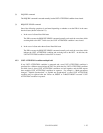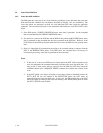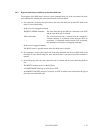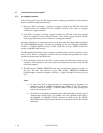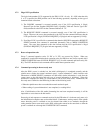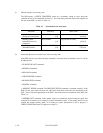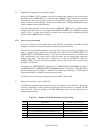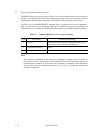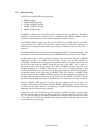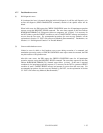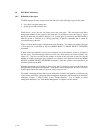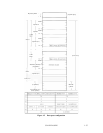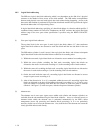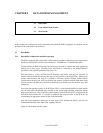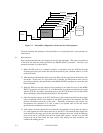C141-E124-01EN 1 - 33
1.7.6 Reset processing
The INIT can reset the SCSI bus with following.
x RESET condition
x TARGET RESET message
x CLEAR TASK SET message
x ABORT TASK SET message
x ABORT TASK message
The RESET condition resets all the SCSI devices connected on the same SCSI bus. The IDD is
initialized to the same state as when its power is switched on by the RESET condition, with the
currently executed command as well as all the commands in the queue cleared.
The TARGET RESET message resets only specific SCSI device (TARG) selected by the INIT,
and can initialize that TARG to the same state as when its power is switched on. However in a
multi-initiator environment, caution concerning clearing of commands issued by other INITs is
necessary.
The CLEAR TASK SET message clears all commands that the IDD is executing or queuing. The
previously set environment and conditions, such as MODE SELECT parameters, are not changed.
An INIT which wants to clear only specific commands it has issued itself must use an ABORT
TASK SET message or an ABORT TASK message. In this case, the INIT generates an
ATTENTION condition at the desired point in time if that command is currently being executed on
the SCSI bus, then sends the ABORT TASK SET message to the TARG. Also, if there is a
disconnect in effect, after the INIT selects the TARG, an ABORT message, in the case of an
untagged command, or an ABORT TASK message, in the case of a tagged command, is sent
following an IDENTIFY message which specifies the object logical unit, or the INIT waits until a
reconnection request occurs, then sends an ABORT TASK SET message or ABORT TASK
message. In the case of an ABORT TASK SET message, only the commands issued previously in
the logical unit specified at that time by the INIT that issues the ABORT TASK SET message
(currently being executed or queuing) are cleared and there is no influence on the other commands.
When an ABORT TASK message is received, only the command issued to the logical unit
specified at that time by the INIT which issued the ABORT TASK message is cleared, and there is
no influence on the other commands. No status byte or TASK COMPLETE message concerning
commands cleared in this processing is reported.
In particular, in the case of clearing of a write operation command for writing to the disk media
which is currently being executed, the IDD stops processing of that command as shown in Table
1.6. The case of halting an overlapping command that is currently being executed (see Section
1.7.1) is the same. The INIT must determine the complete completion state and if necessary, must
execute data recovery processing.



